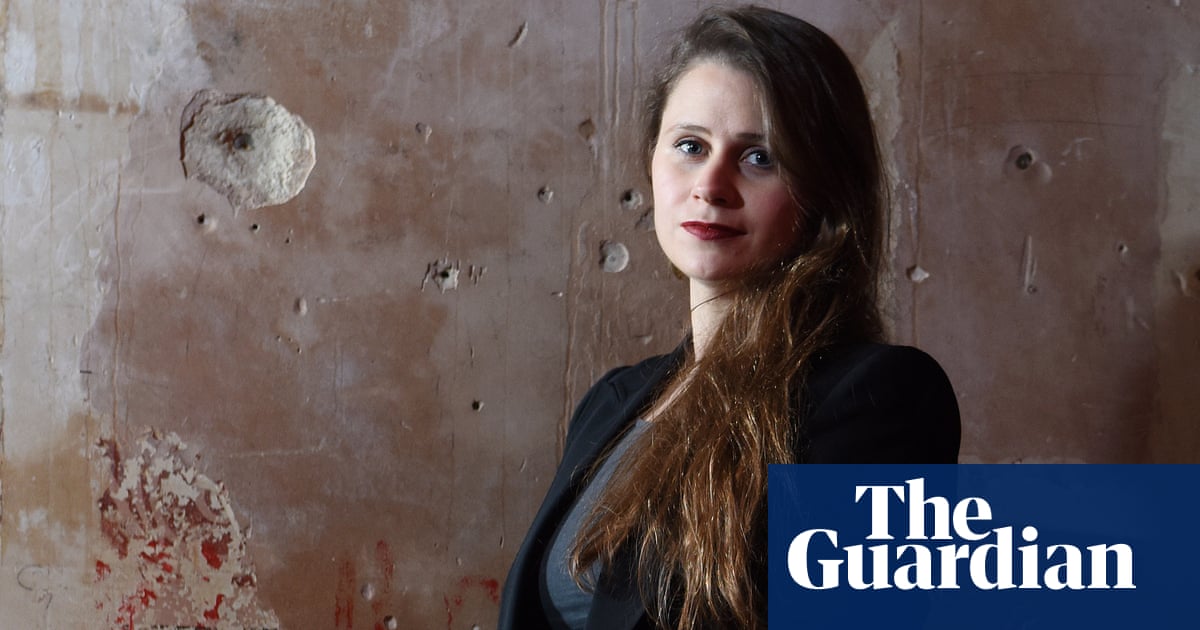‘This had to happen now’: Lucy Kirkwood on Maryland, her 30-minute ‘howl’ of a play - 4 minutes read

It usually takes Lucy Kirkwood two years to write a play, crafting and honing meticulously before sending it out to be staged. Maryland was a very different proposition: described as a “howl” by Kirkwood, it is an eviscerating 30-minute drama written in just two days. The trigger was Sabina Nessa’s killing but its themes of male sexual violence and terror towards women had been percolating in Kirkwood’s mind for the past decade and gathered urgency after Sarah Everard’s rape and murder by a police officer in March.
She had not been commissioned to write it but simply felt compelled to do so earlier this month when she sent it pinging into the inbox of the Royal Court Theatre in London. Days later, its artistic director, Vicky Featherstone, had programmed a run which sold out so quickly that it is now due to be extended. “It had been in my head for years as sketches and lines but Sabina Nessa’s death compounded everything and galvanised me – I felt like this had to happen now,” says Kirkwood, who sits in a backroom of the theatre in a Zoom call with Featherstone, Milli Bhatia and Lucy Morrison, who are co-directing it together.
As a drama, it is a truly terrifying experience, even in a packed auditorium. Staged minimally as a script-in-hand reading with words chalked across the floor to delineate the set, it has a powerful viscerality and a singularly chilling sound effect – a cross between a woman’s scream, a metal screech and a shriek of synthesised menace.
Unassuming at the start, it builds towards its electrifying final moment which is as gothic and grotesque as a Tales of the Unexpected twist, but so much more appalling for its recognisable, real-world resonances, which span Everard and Nessa’s killings and an alleged case of “inappropriate photographs” featuring two murdered sisters and circulated by police officers in a WhatsApp group.
“There’s a vast tapestry in the play that is, unfortunately, rooted in real life. Every single thing in it is informed from something real – my experience or someone I know or something on the news,” says Kirkwood.
The play’s rapid realisation is a refreshing departure from the increasingly lengthy pace of theatre programming, which can stretch to more than two years, says Kirkwood, and it is down to Featherstone’s receptivity and the theatre’s openness that it reached an audience so quickly.
Featherstone does not define it as a “rapid response” play, as such – the themes in it are far from new, she suggests, and we have long grappled with them. But it is a way of providing a space in which to meditate on our feelings together. “I feel like theatre is a place where writers and artists can access what we are feeling or what we think we are feeling and enable us to feel something that we didn’t know how to feel together.”
Like the recent staging of The Living Newspaper, it feels as much a theatrical “action” as a drama: there are seven distinct ensemble casts (the first is led by Ayesha Dharker and Lisa Hammond) along with three co-directors, while ticket prices are kept low, with audiences encouraged to donate to the charity, Rape Crisis England and Wales.
The rolling cast and multiple directors signifies collaboration over singularity of taste or vision and aims for true intersectionality: “It’s so we can work with as many women as possible and also to be part of a collective,” says Morrison. “It’s about sharing the play and not prioritising any specific [directorial] taste.”
So is this drama as activism? Featherstone holds firmly to the belief that theatre can inspire change: this is certainly about clarifying our feelings and “the further ripples of that empathy”.
For Bhatia, the experience is reminiscent of the activism she has taken part in outside theatre and becomes its own dramatic vigil, of sorts: “I went to Sarah Everard’s vigil and this is about looking to a writer to find that [spirit of activism] in this space.”
Kirkwood herself regards it as a raw piece of “agitprop” that deliberately sets out to provoke: “I want to put a stick in it and shake it and make that wasp nest more angry. The gesture of this is to ask why we are not more angry.”
Source: The Guardian
Powered by NewsAPI.org